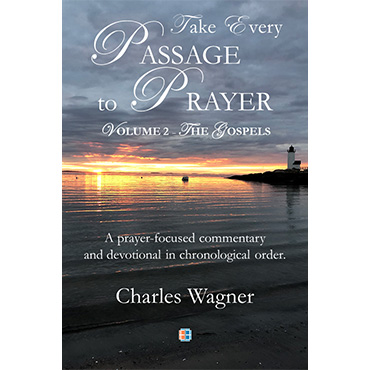The Gramazin Blog

John the Baptist Confronts the Pharisees
Take Every Passage to Prayer - Volume 2, The Gospels
Friday May 31, 2024
Matthew 3:7-10, Luke 3:7-14
Father, thank You for the salvation I have received through faith in Jesus Christ alone. I ask that You now produce fruit in me that proves my salvation is real. Help me to love others and to be generous. Help me to be a man of integrity. Help me to be content with what I have in life. Amen.
Father, I can imagine a rumor was circulating around the religious elite, the Pharisees and Sadducees of Jerusalem :
“There’s some guy out in the wilderness named John who everyone is going to see. He’s calling people to confess their sins and repent. Many say he is the Elijah of Malachi 4. He is claiming the Messiah, the Son of God, is about to be revealed and that Jesus, that troublemaker we worry about, is that Messiah.”
“This isn’t good, dudes. If people continue to hear what this guy is saying, they might follow this Jesus. We will lose our power and authority over the people. We have got to put a stop to this. Let’s go out to him, pretend we want to be baptized, but we will cause trouble for him, so the people turn against him.”
John was not caught off guard. He was ready for them:
- He called them snakes, vipers to be specific. Viper bites in Biblical lands were often lethal. John is suggesting the influence of the legalistic Pharisees and Sadducees on the people was deadly, leading them to spiritual death and eternal damnation.
- They claimed they were there to receive salvation. However, his response implied that it wasn’t the Holy Spirit who led them to be saved but demonic forces who led them to disrupt the gospel message.
- They must have argued to John that they are somehow special because they are descendants of Abraham. John countered by stating they aren’t special in Your eyes. You could turn these “stones”, the unbelieving people who have come into the wilderness to be saved, into Your children by faith (Ezekiel 11:19, 36:26). The Pharisees and Sadducees aren’t necessary.
- If you are truly of God, we would expect to see evidence. Where is the evidence? If there is no evidence of salvation, you are destined to be cut down (the executioner already has his ax in his hand) and sent to hell.
While John spoke to the Pharisees and Sadducees, the crowd, which included tax collectors and soldiers, were listening as well. They became concerned when they heard they will be thrown into hell because they have not exhibited spiritual fruit in their lives. They asked John to clarify what is the fruit that gives evidence that someone is genuinely saved (see the book of James). He told them the fruit that indicates salvation is real includes three key measures:
- Love for your neighbor. How much do you provide for your neighbor in their time of need? Do you try to rip them off or to take advantage of them?
- Integrity. Are honesty and truthfulness important to you? Do you love justice?
- Contentment. Are you satisfied with what you have? Are you thankful for what you have received from God?
Amen.
Footnotes
59. The Pharisees were a very influential group of about 6,000 scholars who placed expectations upon the people to follow not only the Mosaic law but also the oral law, man-made traditions passed down from generations past. The Pharisees, to whom the apostle Paul once belonged, are mentioned 98 times in the New Testament. They believed in God's sovereignty, angels, and eternal life (Acts 23:8). They considered themselves to be the ultimate authority on what God expects of individuals. The Bible indicates that the Pharisees were generally opponents of Jesus. However, they also warned him of danger (Luke 13:31) and invited him for meals (Luke 7:36). The basic conflict between Jesus and the Pharisees was that Jesus preached that faith in Him was the only way to please God whereas the Pharisees said that obedience to the laws and regulations, of which the Pharisees were the experts, was the only way to please God. The Sadducees on the other hand were wealthier and more political. They were the priestly class, the people responsible for overseeing the sacrifices at the temple. They assisted Herod in the administration of government, including the collection of taxes and the administration of justice. They participated in the Sanhedrin, which in 21st century lingo could be considered the “city council”. Unlike the Pharisees, they did not believe in angels or the resurrection of the dead. They also rejected the oral traditions espoused by the Pharisees. They perceived Jesus as a threat to their power and authority.







